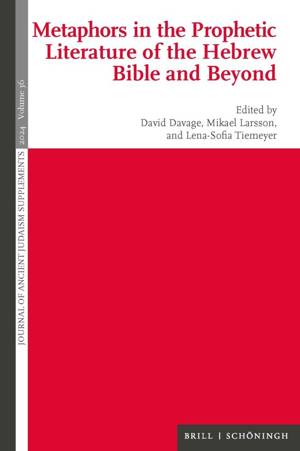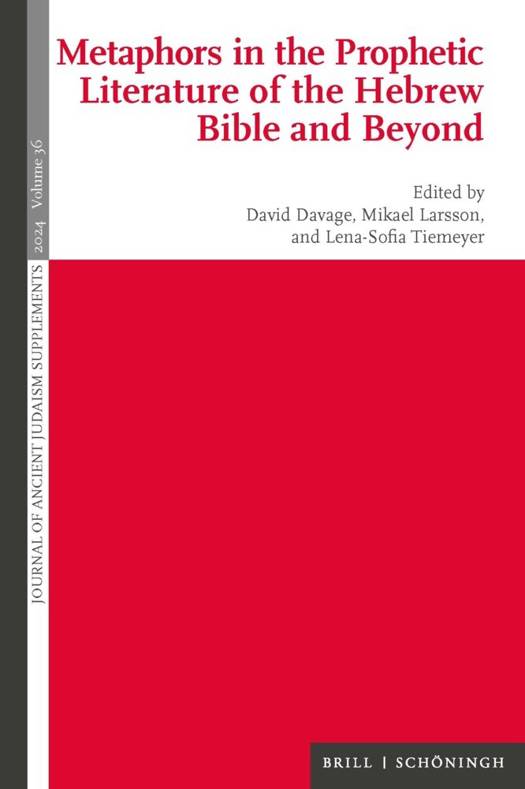
Door een staking bij bpost kan je online bestelling op dit moment iets langer onderweg zijn dan voorzien. Dringend iets nodig? Onze winkels ontvangen jou met open armen!
- Afhalen na 1 uur in een winkel met voorraad
- Gratis thuislevering in België vanaf € 30
- Ruim aanbod met 7 miljoen producten
Door een staking bij bpost kan je online bestelling op dit moment iets langer onderweg zijn dan voorzien. Dringend iets nodig? Onze winkels ontvangen jou met open armen!
- Afhalen na 1 uur in een winkel met voorraad
- Gratis thuislevering in België vanaf € 30
- Ruim aanbod met 7 miljoen producten
Zoeken
Metaphors in the Prophetic Literature of the Hebrew Bible and Beyond
€ 127,45
+ 254 punten
Omschrijving
This collection of articles is tightly focused on metaphors in the prophetic literature of the Hebrew Bible and their later afterlife in Jewish and Christian texts. The essays deal with a wide range of historical, literary, and methodological issues. First, several contributions employ metaphor theory in analysing the biblical texts, both conceptual frameworks such as blending theory and more traditional methods. Second, metaphors are studied both synchronically, that is, in relation to their current literary contexts, and diachronically, that is, mapping how they have been employed and re-interpreted in different ways and different texts throughout time. Third, other contributions read metaphors in light of theoretical frameworks such as feminist criticism, post-colonial theories, or power discourses that uncover aspects of significance often missed in historical studies. Finally, yet other contributions deal with the issue of how to translate metaphors in contemporary contexts.
Specificaties
Betrokkenen
- Uitgeverij:
Inhoud
- Aantal bladzijden:
- 403
- Taal:
- Engels
- Reeks:
- Reeksnummer:
- nr. 36
Eigenschappen
- Productcode (EAN):
- 9783506793966
- Verschijningsdatum:
- 1/12/2023
- Uitvoering:
- Hardcover
- Formaat:
- Genaaid
- Afmetingen:
- 219 mm x 32 mm
- Gewicht:
- 993 g

Alleen bij Standaard Boekhandel
+ 254 punten op je klantenkaart van Standaard Boekhandel
Beoordelingen
We publiceren alleen reviews die voldoen aan de voorwaarden voor reviews. Bekijk onze voorwaarden voor reviews.










